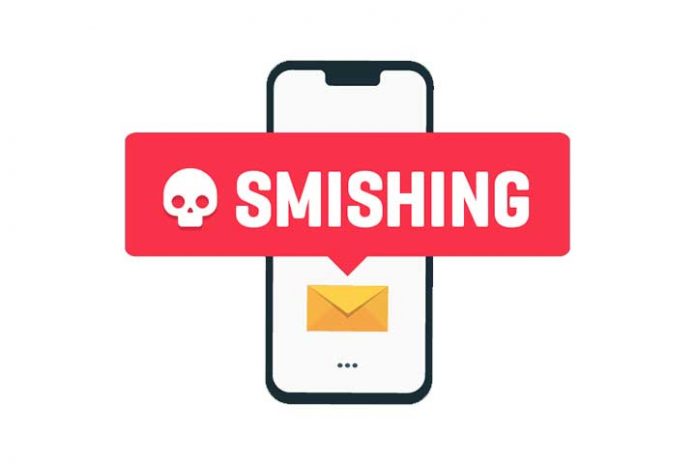The friends of others usually go one step ahead of the security measures. When we worked in an office, the hackers invented phishing (stealing identities via email to obtain personal banking data, etc.). Now, with offshoring and massive access to our data from mobile devices, “cyber Caicos” have created a new threat for everyone; the Smishing. With the extension of IP telephony, calls over the Internet and biometric encryption will not take long to ask for voice messages, but we go in parts.
The times in which to access the Internet we sat at our desk in front of the PC are long gone. Now we are connected to our mobile phone all day… and we are doubly vulnerable to attacks and theft through the network.
Smishing is a technique that shares its objective with phishing; impersonate your digital identity and access your data, bank accounts, social networks, etc. The difference is that this latest invention uses SMS to request those passwords that, in principle, shield your accounts.
Distrust
First of all, and not to have to regret it, if an SMS appears on your smartphone screen with a message asking you to verify your bank account, be suspicious. And be especially wary if you have not requested changes or updates from your online banking operator. We do not usually do, which could make it more difficult for hackers to inform our entity – and in its case, the police – of the message that has reached us. We let it pass on too many occasions not to waste a few minutes, and these messages roam the web at ease until it is too late for many unwary.
Knowing that the best option against Smishing is not to answer the messages until we have effective confirmation that it is our entity that requests this information, in addition to caution, another of the tools at our disposal to protect ourselves from this. The type of attack on our mobile is anti-malware applications (apps). You can find them available for any operating system and both free and paid.
And, of course, special attention online to those pages or networks that request your information to access records, participate in contests or enter sweepstakes. If you like to participate in this type of activity on the Internet, we recommend that you create a virtual identity with a profile that you use only for these things. As a payment method, we recommend secure platforms such as Paypal that you can use as a virtual wallet in which you only enter what you want to spend. And if you usually buy online and you need to make payments with a credit card, it never hurts to have a second bank account with a card to make payments without anyone accessing your accounts.

